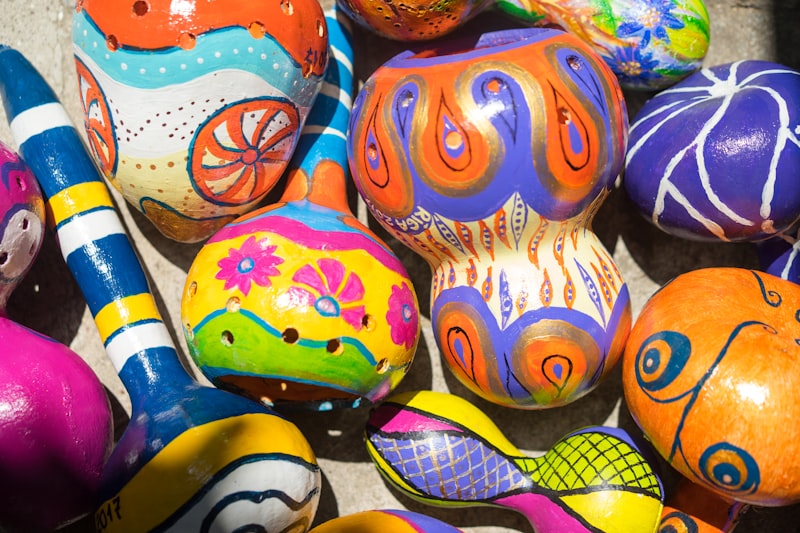- Seeing your own face in a dream represents self-reflection, introspection, and the need for personal growth.
- The appearance and condition of your face in the dream can provide clues about your current life circumstances and inner thoughts.
- Different mediums of reflection, such as mirrors or photographs, offer insights into your self-image, emotions, and how you want to be perceived by others.
- The interpretation of dreams about seeing your own face depends on the emotions, details, and personal associations within the dream, but it often signifies the importance of self-acceptance and personal transformation.
Dreams are mysterious and often hold deeper meanings than what meets the eye. One intriguing dream scenario is seeing your face, which can provide valuable insight into your subconscious mind. The symbolism of seeing your own face in a dream holds significant meaning and can offer a unique perspective on your thoughts, emotions, and personal growth.
Symbolism and Meaning of Seeing Your Face in Dreams

1. The Symbolism of Seeing Your Own Face
The face is a powerful symbol in dreams and represents various aspects of our identity, self-perception, and how we present ourselves to the world. When you see your own face in a dream, it serves as a mirror to your personality, mental state, and emotions. The appearance and condition of your face in the dream can provide valuable clues about your current life circumstances and inner thoughts.
Significance of the Medium of Reflection
Seeing your face through different mediums, such as a mirror, an out-of-body experience, or photographs, offers insights into your personality and mental state. Your face in these reflections represents your current self-image, emotions, and how you want to be perceived by others. If your face looks different or appears worn out in the dream, it is essential to reflect on what might be happening in your life that is influencing your self-perception.
Common Dream Scenarios and Their Interpretations
Dreams about seeing your face in a mirror often indicate a need for self-reflection and introspection. It suggests that there are aspects of yourself or your life that require serious consideration and soul-searching. Take note of any feelings of dissatisfaction or a desire for personal growth, as these dreams may be prompting you to make changes in your life.
If you see your face from someone else’s perspective or have an out-of-body experience, it signifies feeling like an observer in your own life. This dream is a call to take ownership of your life and prioritize self-care and self-fulfillment over constantly pleasing others. It’s a reminder to focus on your own needs and aspirations.
When you see yourself in a photograph, it represents the past. If your dream evokes feelings of regret, guilt, or shame, it suggests that it’s time to forgive yourself, apologize if necessary, or take whatever steps are needed to move forward in your life.
Analyzing the Appearance of Your Face
When examining dreams about seeing your own face, pay attention to the details of how your face looks. Does it resemble your waking face, or are there noticeable differences? Different face alterations can have varying interpretations. For example, a red face might indicate an upcoming danger or threat related to the way you present yourself to the world.
Dreams involving blemishes or scratches on your face suggest that emotions or your reputation need attention. Pimples and zits could indicate repressed emotions seeking a way out, while scratches may symbolize efforts to save your reputation from harm. A smaller nose or larger ears suggest significant changes on the horizon, often triggered by self-reflection.
Consider how you feel during the dream, as emotions offer valuable insight. Anxious or scared feelings while seeing scratches may indicate that your current actions may lead you astray if not changed soon. Excitement, happiness, or elation when seeing your face looking younger highlights the importance of being unapologetically yourself.
2. Personal Reflection and Interpretation
While dreams about seeing your face can hold significant meaning, it’s important to reflect on your personal experiences and emotions within the dream. Dreams are highly subjective, and individual interpretations can vary. Trust your intuition and use your own life context to uncover the deeper insights and messages of your dream.
Keeping a dream journal by your bedside can be a helpful tool to record your dreams and gain greater self-awareness. Write down the details, emotions, and symbols associated with your dream about seeing your face. Over time, patterns and recurring themes may emerge, offering a clearer understanding of your subconscious thoughts and emotions.
Deeper Emotional and Psychological Analysis

Seeing Your Own Face as a Reflection of Self-Image:
Dreaming about seeing your own face can be a powerful and introspective experience. It often reflects how you perceive yourself and your self-image. This dream scenario allows you to delve deeper into your self-identity and explore your own self-reflection.
In many cases, seeing your own face in a dream can indicate a new phase of self-discovery and self-acceptance. It serves as a mirror, providing you with clues about your true self, your strengths, and your weaknesses. This awareness can be a significant step in your personal growth and development journey.
On the other hand, if you see your own face in a distorted or unappealing manner, it may be a sign of self-doubt and insecurity. It suggests that you may not fully accept or appreciate yourself for who you are. This dream serves as a gentle reminder to cultivate a healthier self-image and practice self-acceptance.
How Dreams Map Unresolved Emotions and Conflicts:
Dreams are a window into your subconscious mind, where unresolved emotions and conflicts often reside. When you see your own face in a dream, it can bring these hidden emotions and conflicts to the surface, providing an opportunity for self-reflection and healing.
For example, if you see sadness or anger on your face in the dream, it may indicate repressed emotions or unresolved issues that need to be addressed. This dream is offering you a chance to acknowledge and process these emotions, ultimately leading to a sense of inner peace.
Similarly, if your face appears distorted or changing, it could symbolize internal conflicts or a sense of confusion within yourself. This may be a call to resolve these conflicts and find a greater sense of coherence and harmony in your life.
The Role of Emotions in Dreaming:
Emotions play a significant role in dreams, and they can provide valuable insights into your emotional well-being. When interpreting dreams about seeing your own face, it is crucial to pay attention to the emotions you experience during the dream.
If you wake up from the dream feeling peaceful, content, or inspired, it is a positive sign that you are on the right track in terms of self-acceptance and personal growth. These emotions indicate a healthy relationship with yourself and a sense of alignment with your true identity.
Conversely, if you wake up feeling confused, frustrated, or dissatisfied, it may be an indication that there are unresolved emotions or conflicts that require your attention. These emotions are asking you to delve deeper into your self-reflection and explore what may be holding you back from self-acceptance.
Exploring Personal Associations in Dream Analysis:
Interpreting dreams about seeing your face can be a deeply personal experience. It is essential to explore the associations you have with your own face and the specific details of the dream. Identifying personal symbols or meanings can provide a more accurate interpretation of the dream.
Consider the emotions, memories, or experiences that arise when you think about your face. Do certain features represent certain qualities or traits? Are there specific events in your life that are connected to your self-image or self-identity? Reflecting on these associations can shed light on the deeper meaning of the dream.
Navigating the Path to Self-Discovery and Growth:
Dreams about seeing your own face offer a unique opportunity for self-discovery and personal growth. They provide insights into your self-image, self-acceptance, and unresolved emotions. By analyzing these dreams and reflecting on their symbolism, you can embark on a journey of self-reflection and understanding.
As you navigate through the dream world, remember to trust your intuition and listen to your inner voice. Identify any patterns or recurring themes in your dreams that can guide you towards a deeper understanding of yourself. Embrace the transformative power of these dreams and continue your quest for self-acceptance, self-love, and personal growth.
Cultural and Religious Interpretations

Dreams have always held a deep fascination for humans, and various cultures and religions have ascribed different meanings and interpretations to the symbols and images that appear in dreams. When it comes to dreaming about seeing your own face, there are diverse beliefs and cultural perspectives that provide valuable insights into the significance of this dream experience. In this section, we will explore some of these interpretations from different cultural and religious backgrounds.
1. Different Cultural Beliefs around Dreams Featuring Oneself
In many cultures, dreams are seen as a means of communication between the mortal world and the spiritual realm. The appearance of one’s own face in a dream can carry a range of meanings and interpretations:
- In ancient Egyptian culture, dreams were considered significant messages from the gods. Seeing one’s own face in a dream was often associated with personal transformation and spiritual growth.
- In Native American cultures, dreams were believed to be messages from ancestors or spirit guides. Seeing one’s own face in a dream could symbolize a connection to ancestral wisdom and guidance.
- In Chinese culture, dreams were seen as reflections of one’s inner self. Seeing one’s own face in a dream was viewed as a sign of self-awareness and self-reflection, inviting the dreamer to explore their own identity and desires.
- In African cultures, dreams were thought to provide guidance from the spirit world. Seeing one’s face in a dream could signify the presence of a guardian spirit or an invitation to connect with one’s true self.
These different cultural beliefs highlight the importance of self-reflection, spiritual connection, and personal growth in interpreting dreams featuring one’s own face.
2. Religious Perspectives on Dream Symbols
In many religious traditions, dreams hold significant spiritual and prophetic meanings. While interpretations may vary, religious perspectives offer additional insights into dreams about seeing one’s own face:
- Christianity
In Christianity, dreams are often seen as a means of divine communication. Seeing one’s own face in a dream could be seen as an opportunity for self-examination and reflection, as well as a call to align oneself with God’s purposes. - Islam
In Islam, dreams are believed to contain important messages from Allah. Seeing one’s face in a dream could be a sign of self-awareness and introspection, as well as a reminder to strive for righteousness and self-improvement. - Buddhism
In Buddhism, dreams are seen as reflections of one’s thoughts, actions, and karma. Seeing one’s face in a dream could be an invitation to examine one’s own intentions, desires, and attachments, and to cultivate mindfulness and self-compassion.
These religious perspectives emphasize the role of self-reflection, self-improvement, and spiritual growth in interpreting dreams about seeing one’s face.
3. Angels, Omens, and Interpreting Positive vs. Negative Feelings
In some cultural and religious beliefs, dreams featuring one’s own face can be associated with positive or negative omens or messages:
- Positive Feelings
When viewing one’s own face in a dream brings positive emotions such as joy, peace, or calmness, it can be interpreted as a good sign. It may indicate personal growth, self-acceptance, or a deepening spiritual connection. - Negative Feelings
Conversely, if seeing one’s own face in a dream causes negative feelings such as fear, anxiety, or unease, it may suggest unresolved issues, inner conflicts, or a need for self-examination and healing.
The interpretation of dreams is highly subjective, and individuals should trust their own instincts and emotional responses when interpreting dreams about seeing their face.
Practical Steps to Analyzing Dream Content

Dreams can be mysterious and fascinating, especially when they involve seeing your own face. If you’re curious about the meaning behind these dreams and want to analyze their content, here are some practical steps you can take:
1. Tips for Remembering and Recording Dreams
One of the first steps to analyzing your dreams is to remember and record them. Here are some tips to help you achieve this:
- Keep a dream journal
Place a notebook and pen next to your bed so that you can easily record your dreams as soon as you wake up. Write down any images, emotions, or details that you can remember. - Set an intention to remember your dreams
Before going to sleep, tell yourself that you will remember your dreams upon waking. This intention can help train your brain to be more mindful of your dream content. - Practice good sleep hygiene
Creating a sleep routine and ensuring a peaceful sleep environment can help improve dream recall. Avoid stimulating activities or screens before bed and maintain a consistent sleep schedule. - Wake up naturally
If possible, allow yourself to wake up naturally without the aid of an alarm clock. This can help you recall dreams more easily, as abrupt awakenings can cause dreams to fade quickly.
2. Seek Professional Interpretation
While analyzing your own dreams can be insightful, seeking professional interpretation can provide valuable insights. Consider consulting with a dream analyst, psychologist, or therapist who specializes in dream analysis. They can offer guidance and help you uncover hidden meanings within your dreams.
3. Use Dreams as a Tool for Personal Growth
Dreams can offer valuable insights into your subconscious mind and personal growth. Here are some ways to use your dreams as a tool for self-improvement:
- Reflect on recurring themes
Pay attention to any recurring themes or symbols in your dreams. These may indicate important messages or unresolved issues that need your attention. - Identify emotional patterns
Analyze the emotions you experience in your dreams. Are there consistent feelings of fear, anxiety, or joy? Identifying these emotional patterns can provide insights into your subconscious thoughts and feelings. - Explore dream symbolism
Look for any symbolism or metaphors in your dreams. Certain objects, people, or situations may represent deeper meanings or aspects of yourself. - Connect with your intuition
Trust your intuition when interpreting your dreams. Your subconscious mind often communicates through symbols and emotions, so listen to your inner voice and trust your gut feelings about the meaning of your dreams.
4. Reflect on Your Waking Life
Your dreams are often influenced by your waking life experiences and emotions. Reflecting on your daily life can help you analyze the content of your dreams more effectively. Consider the following:
- Look for connections
Identify any connections between the events, people, or emotions in your dreams and what is happening in your waking life. Are there any unresolved conflicts, relationships, or goals that are being reflected in your dreams? - Analyze your emotions
Pay attention to the emotions you experience in your dreams and consider how they relate to your daily life. Are there any underlying feelings or anxieties that are coming to the surface? - Consider your self-image
Reflect on the way you perceive yourself in your dreams. Are you confident, insecure, or struggling with self-acceptance? Exploring this aspect can provide insights into your self-image and personal growth.
5. Reflect on Cultural and Spiritual Interpretations
Cultural and spiritual beliefs can also provide additional insights into the meaning of seeing your own face in dreams. Consider your own cultural or spiritual background and any traditional interpretations related to dreams. Reflect on how these beliefs may influence your understanding and analysis of your dreams.
6. Discuss Your Dreams with Others
Sharing your dreams with trusted friends or family members can offer different perspectives and insights. They may provide observations or interpretations that you might not have considered.
7. Practice Self-Care and Mindfulness
Dream analysis is an ongoing process and requires self-care and mindfulness. By taking care of your physical and mental well-being, you can create an environment that promotes vivid and meaningful dreams. Practice relaxation techniques, mindfulness meditation, and prioritize self-care to enhance your dream experiences.
8. Trust Your Intuition and Enjoy the Journey
Remember that dreams are highly personal and unique to each individual. Trust your own intuition when interpreting your dreams and enjoy the journey of self-discovery. Analyzing your dreams can provide valuable insights into your subconscious mind, personal growth, and self-awareness.
Remember that your dreams are always trying to tell you something about yourself. Seeing your own face in a dream is a powerful symbol of self-awareness and personal growth. The way you perceive your face in the dream can offer valuable insights into your current emotions and self-image. Don’t be afraid to reflect on what your dreams may be trying to show you. Use them as a tool to deepen your understanding of yourself and work towards the personal transformation you desire. Embrace the importance of self-acceptance and know that through your dreams, you have the ability to achieve a greater sense of self-awareness and personal growth.










Leave a Reply